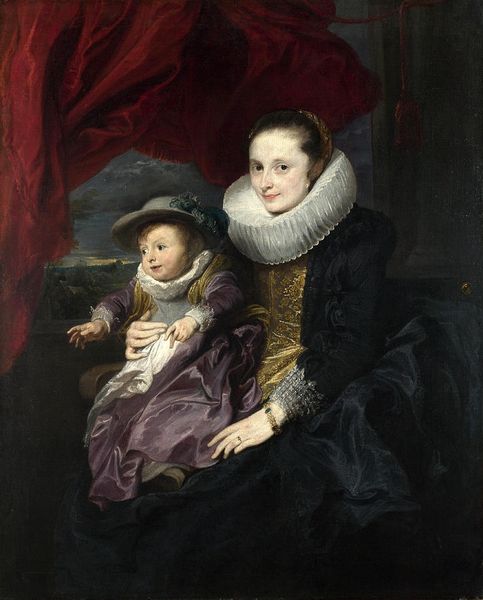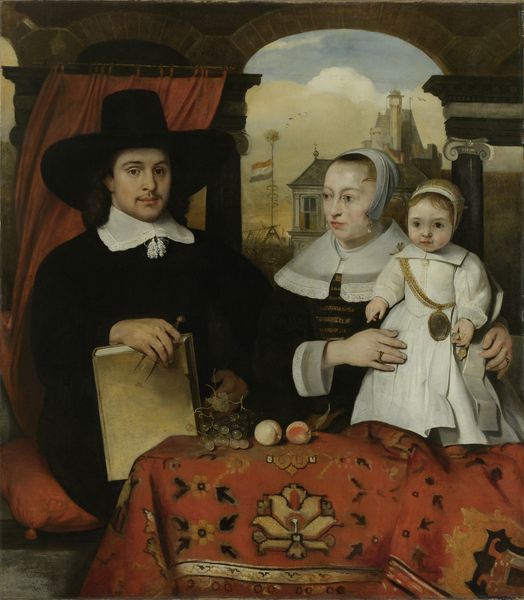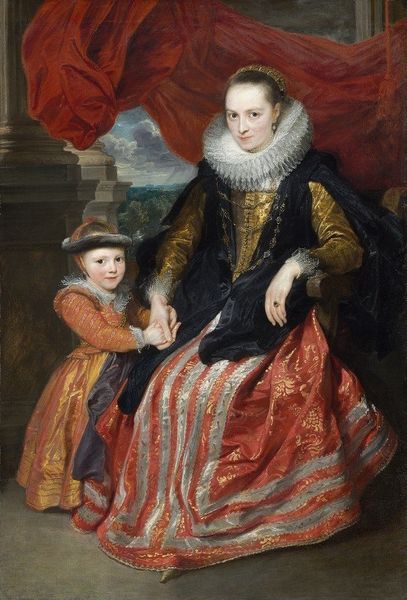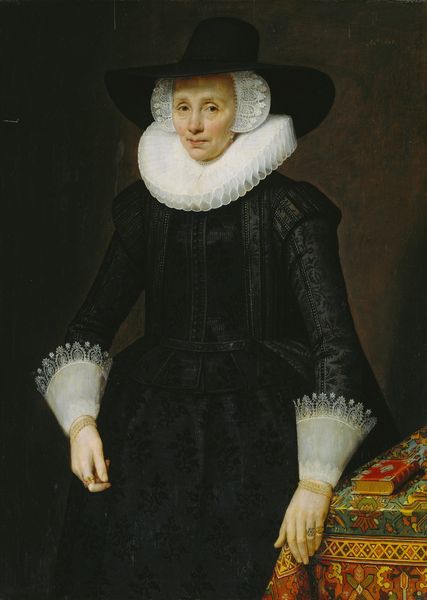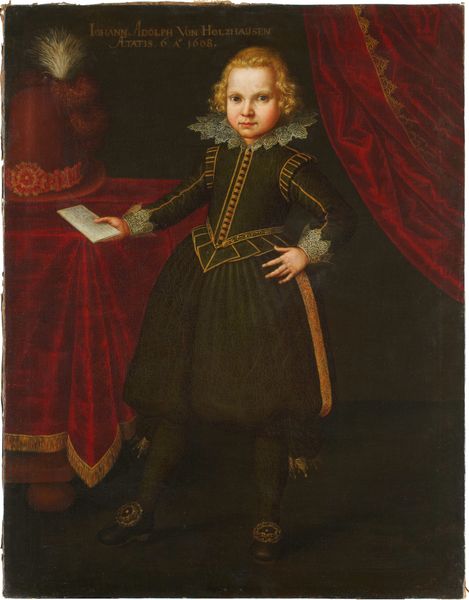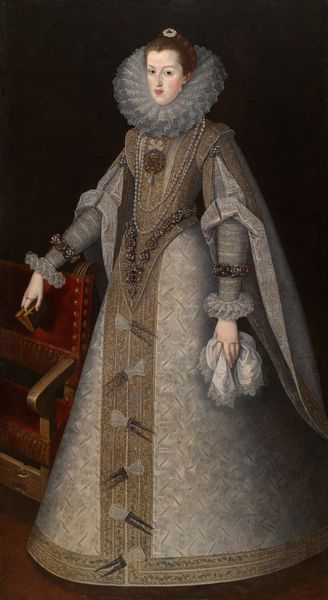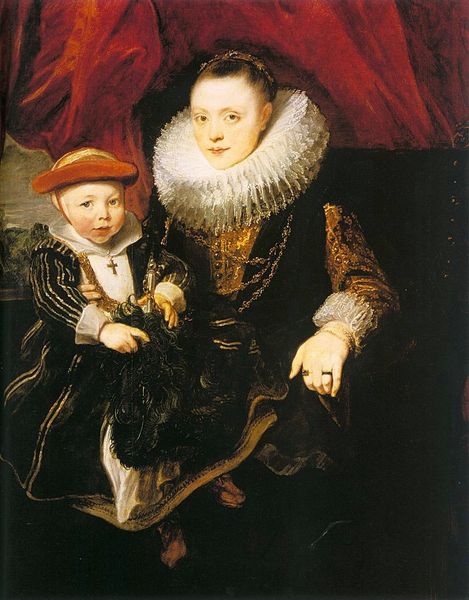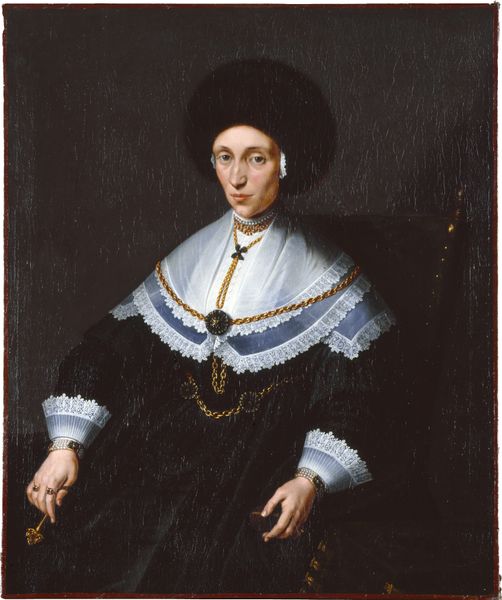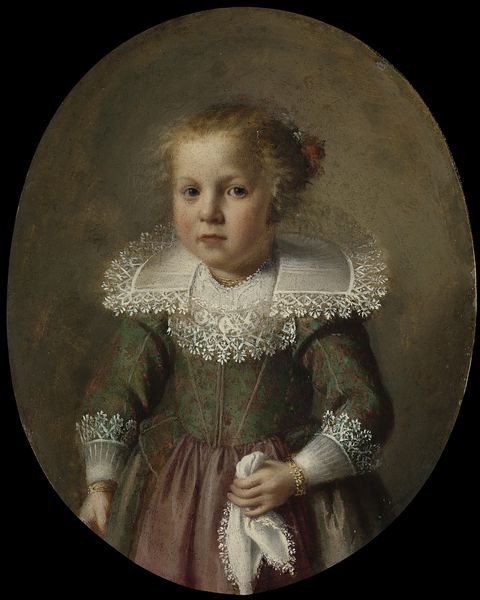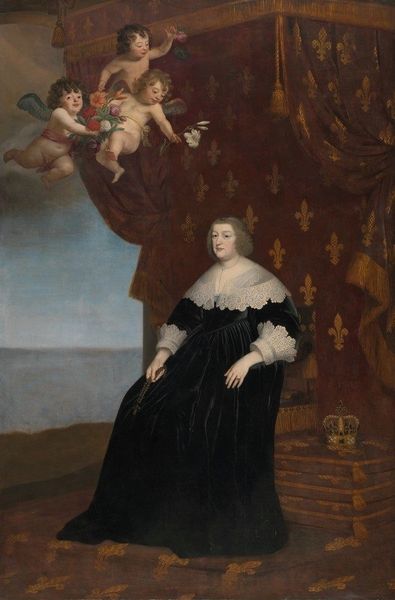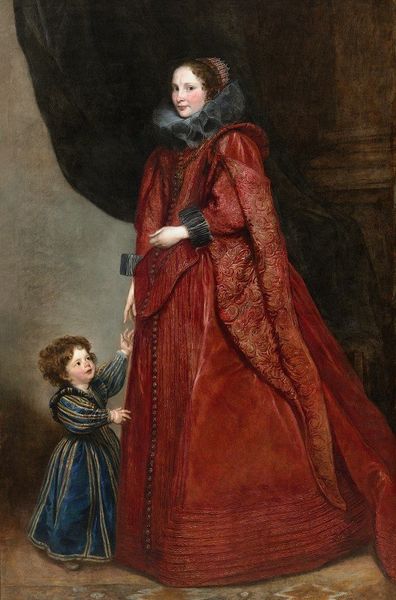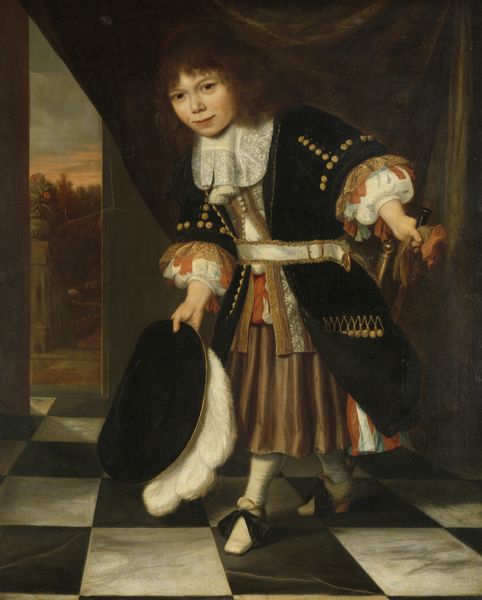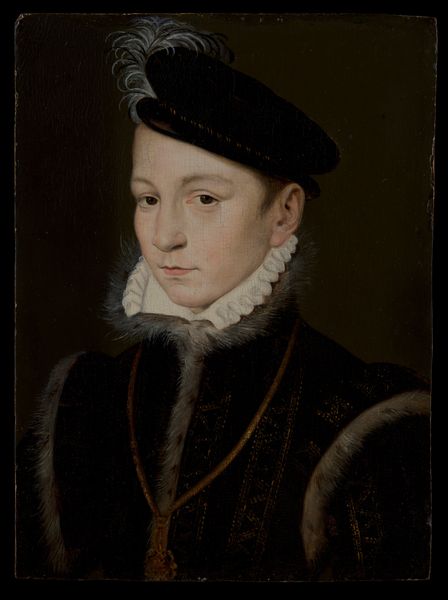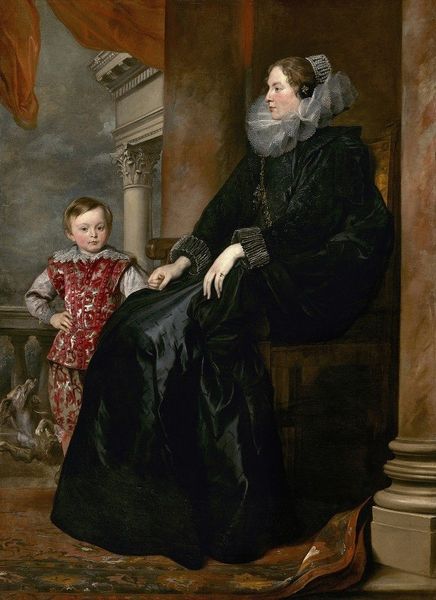
Dona Antonia de Ipenarrieta y Galdos and her Son 1631
0:00
0:00
diegovelazquez
Museo del Prado, Madrid, Spain
painting, oil-paint
#
portrait
#
baroque
#
painting
#
oil-paint
#
figuration
#
realism
Dimensions: 110 x 215 cm
Copyright: Public domain
Diego Velázquez painted Doña Antonia de Ipenarrieta y Galdós and her son in oil on canvas. The portrait’s starkness reflects the somber mood of 17th-century Spain, a nation grappling with economic decline and social upheaval. Velázquez, as court painter, was deeply embedded within the Spanish monarchy and aristocracy. This work, like others, served a crucial function in solidifying the power and status of the ruling elite. The dark clothing and restrained palette, typical of Spanish courtly fashion, signaled dignity and gravity, virtues highly valued in a society that was deeply religious and conscious of social hierarchy. The luxurious fabrics and delicate lace, however, betray the family’s wealth and privilege. To understand this painting fully, scholars delve into period documents: letters, inventories, and genealogical records that shed light on the sitters and their place in society. By examining the social and institutional contexts of art, we can better appreciate its historical significance and enduring power.
Comments
No comments
Be the first to comment and join the conversation on the ultimate creative platform.
